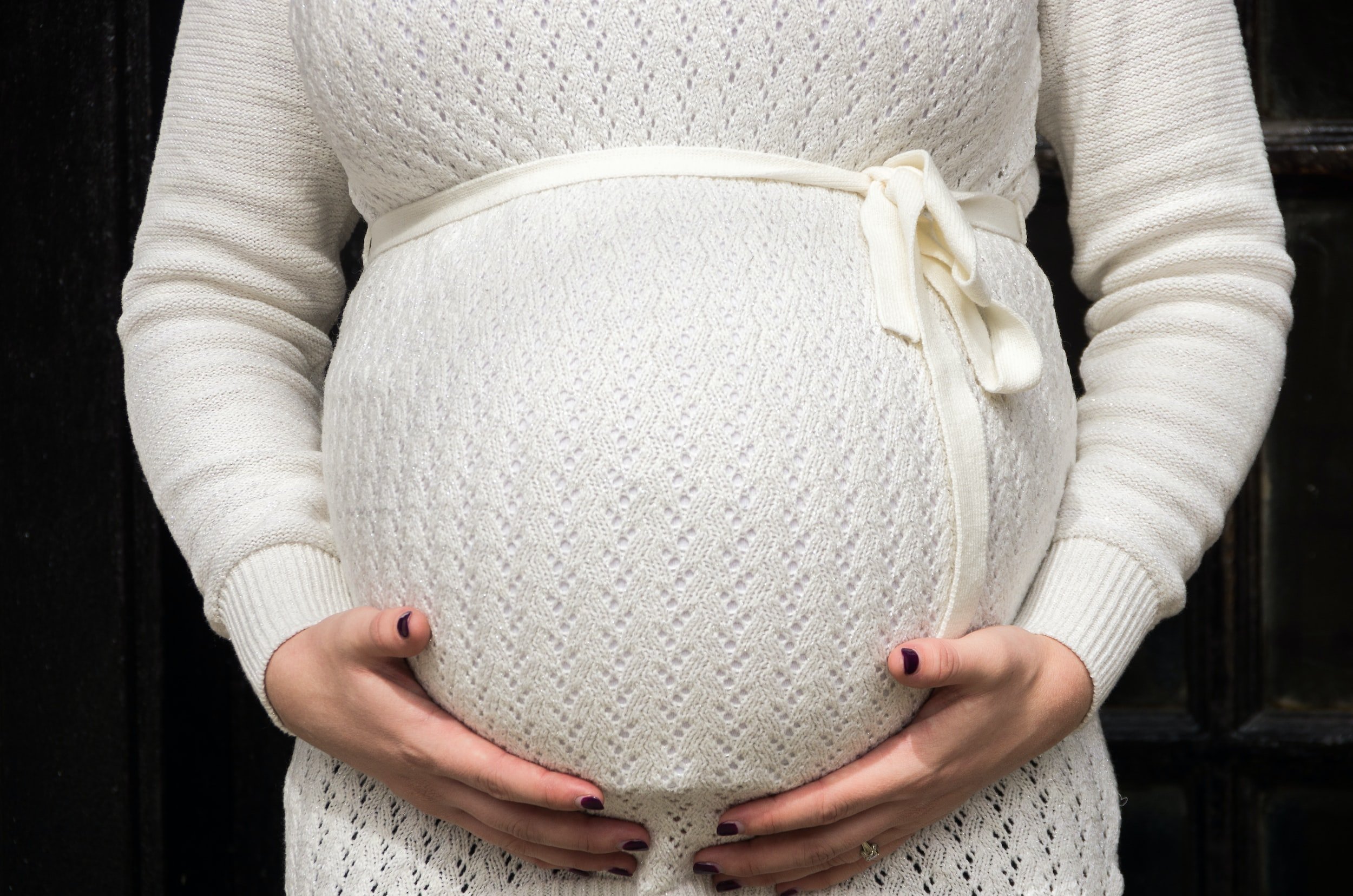Lower Back Pain In Pregnancy: Management and Relief
by Ryan Salter
Lower back pain is a common discomfort experienced by many pregnant women. In fact, approximately 50 percent of pregnant women suffer from lower back pain at various periods of their pregnancy. As the uterus and baby grow, the center of gravity shifts, increasing back pain. This article will discuss the different causes of lower back pain during pregnancy and provide valuable tips on managing and alleviating the pain.
Causes of Lower Back Pain in Pregnancy
Poor posture and standing for a long time: Pregnant women who stand for long periods or have poor posture may experience increased lower back pain. It is due to the additional weight and strain on the muscles and ligaments in the pelvic area and lower back.
Stress: Women who experience an increase in back pain during stressful periods of their pregnancy may find that the body's response to stress leads to muscle tension and stiffness, particularly in the lower back.
Urinary tract infection: A urinary tract infection can cause pain in the lower back and pelvic region. If you suspect a urinary tract infection, consult your healthcare provider for diagnosis and treatment.
Preterm labour: Lower back pain can be a sign of preterm labor, especially if accompanied by other symptoms such as contractions, vaginal bleeding, or a change in vaginal discharge. Contact your healthcare provider immediately if you experience these symptoms.
Women with pre-existing lower back problems: Pregnancy can exacerbate existing lower back issues, leading to increased discomfort and pain.
Prevention and Management Strategies
Wear shoes with good arch support: Wearing shoes with good arch support can help alleviate lower back pain by providing better support for your feet and reducing the strain on your back.
Avoid high heels: High-heeled shoes can exacerbate pain by shifting your centre of gravity and increasing the strain on your lower back muscles. Opt for comfortable, low-heeled shoes during pregnancy.
Consult a physiotherapist: A physical therapist (physiotherapist) can provide personalised exercises and stretches to help strengthen your core muscles, improve your posture, and alleviate lower back pain.
Sleep on your side with knees bent: Sleeping on your side with your knees bent can help relieve pressure on your lower back. Use support pillows between your knees and under your belly to provide additional comfort and support.
Wearing a support belt: A maternity support belt can help distribute the weight of your growing baby more evenly across your back and pelvis, reducing the strain on your lower back muscles.
Take breaks and avoid standing for a long time: If your job requires you to stand for long periods, take frequent breaks to sit or walk around. This will help alleviate the pressure on your lower back.
Sit up straight: Proper posture can help reduce the strain on your back muscles. Keep your back straight and shoulders back while standing, and use a lumbar roll or cushion to support your lower back when sitting.
Stay active: Regular physical activity like walking or swimming can help strengthen your muscles and alleviate lower back pain. Consult your healthcare provider before starting any exercise programme during pregnancy.
Use cold compresses: Applying cold compresses to the affected area can provide temporary relief from lower back pain.
Relief Strategies
Apply a heating pad or water bottle: A heating pad or warm water bottle can temporarily relieve lower back pain by relaxing the muscles and increasing blood flow to the affected area. Follow the manufacturer's instructions and avoid applying heat directly to your skin.
Massage: Gentle massage can help alleviate lower back pain by relaxing the muscles and increasing blood flow. Ask your partner, a friend, or a professional massage therapist for a gentle massage, focusing on your lower back and hips.
Practice relaxation techniques: Deep breathing, meditation, or prenatal yoga can help reduce stress and alleviate lower back pain by promoting relaxation and increasing flexibility.
Acupuncture: Some pregnant women find relief from lower back pain through acupuncture. This traditional Chinese medicine technique involves inserting thin needles into specific points on the body to promote healing and pain relief. Consult a licensed acupuncturist with experience treating pregnant women for safe and effective treatment.
Chiropractic care: Chiropractic adjustments can help realign your spine and alleviate lower back pain by addressing misalignments or joint restrictions. Ensure you consult a chiropractor with experience treating pregnant women to receive safe and effective care.
Prenatal support groups: Joining a prenatal support group can provide emotional support and practical advice from other expecting mothers experiencing similar challenges. Sharing tips and experiences with others can help you feel less isolated and better equipped to cope with lower back pain during pregnancy.
Conclusion
Lower back pain is a common complaint during pregnancy that you can manage through prevention strategies and relief techniques. Pregnant women can minimise their risk of developing lower back pain by wearing shoes with good arch support, practising good posture, consulting a physical therapist, and avoiding standing for a long time. Additionally, employing relief strategies such as using a heating pad or water bottle, seeking massage or acupuncture treatment, and can help alleviate discomfort as the baby grows.
Always consult your healthcare provider before starting new treatments or exercise programmes during pregnancy to ensure they are safe and appropriate for you and your baby.


